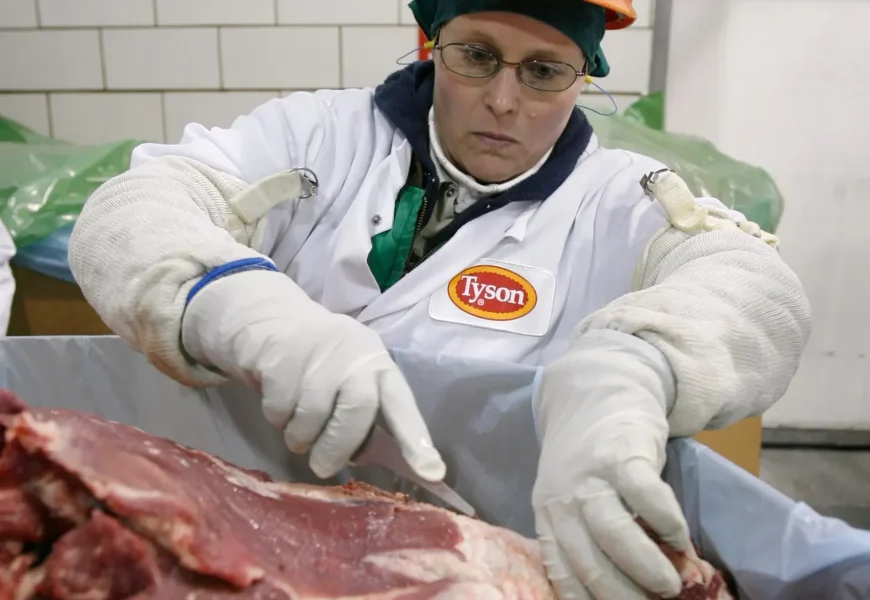OMAHA, Neb. (AP) – Tyson Foods’ decision to close a beef plant that employs nearly one third of residents of Lexington, Nebraska, could devastate the small city and undermine the profits of ranchers nationwide.
Tyson’s beef plant closure in Nebraska will impact a reliant town and ranchers nationwide
OMAHA, Neb. (AP) – Tyson Foods’ decision to close a beef plant that employs nearly one third of residents of Lexington, Nebraska, could devastate the small city and undermine the profits of ranchers nationwide.
Closing a single slaughterhouse might not seem significant, but the Lexington plant employs roughly 3,200 people in the city of 11,000 and has the capacity to slaughter some 5,000 head of cattle a day. Tyson also plans to cut one of the two shifts at a plant in Amarillo, Texas, and eliminate 1,700 jobs there. Together those two moves will reduce beef processing capacity nationwide by 7-9%.
Consumers may not see prices change much at the grocery store over the next six months because all the cattle that are now being prepared for slaughter will still be processed, potentially just at a different plant. But in the long run, beef prices may continue to climb even higher than the current record highs – caused by a variety of factors from drought to tariffs – unless American ranchers decide to raise more cattle, which they have little incentive to do.
An increase in beef imports from Brazil, like President Donald Trump encouraged last week by slashing tariffs on the South American country, may help insulate consumers while ranchers and feedlots struggle with high costs and falling prices.

